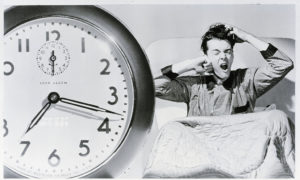Time’s Up For Switching Clocks? Congress Considers Daylight Saving
Is it a good idea to change the clocks – or is it time to decide on a timezone and keep it?
By: Kirsten Brooker | March 22, 2022 | 536 Words

(Photo by Gary Hershorn/Getty Images)
Spring forward. Fall back. Year after year, most Americans are forced to change their clocks by an hour in the spring and fall. As we set our clocks forward one hour, Daylight Saving Time (DST) provides an extra hour of sunlight to coincide with end of winter and the beginning of spring.
While the idea of changing the clocks has been around for over 100 years, more and more people are beginning to question the twice-annual ritual. The US Senate has recently passed a bill that would keep the United States on DST time all year round.
Senate Votes Unanimously
On Tuesday, March 15, 2022, the Senate voted unanimously to end the clock changing and make daylight saving time permanent.

If passed by the House of Representatives, The Sunshine Protection Act would relieve Americans of the bother that losing or gaining an hour creates.
Even though many agree that changing the clocks every few months is inconvenient, there is some debate over which option is better: keeping DST permanently, or getting rid of it altogether.
Problems Caused by Time Change
It’s only an hour; what’s the big deal? Well, humans are beings of ritual and repetition. Even by just an hour, changing the time disrupts our routine and leads to potential health concerns. For example, tiredness, heart disease, and stroke are at an increased risk, along with depression or anxiety. Studies have also shown that car accidents occur more frequently in the days directly following the time change.

(Getty Images)
Sleep scientists also have concerns about the choice to stay on Daylight Savings Time rather than Standard Time, as it does not correspond with a human’s internal clock. While people might enjoy sunshine later into the evening, encouraging people to fall asleep later and get up earlier may harm Americans’ health.
Now it is up to lawmakers to decide which option is best.
Hawaii and Arizona Say No, Thank You
Ohio representative J. Kyle Koehler (R) advocates for making DST the new normal. He is concerned that students in his state were asked to take tests on the Monday after the clocks were changed to DST. The pupils had no time to adjust to losing an hour of sleep before taking the important exams. Are these disruptions necessary? For two US states, the answer to that question is no.
Federal law doesn’t allow states to permanently keep Daylight Savings Time, but it does let them remain on Standard Time year-round if the state legislature approves it. Hawaii and Arizona both took the option to opt-out of DST. Both states already see a lot of sunlight each day, and it doesn’t fluctuate much over the course of the year. Therefore, the states saw no reason to put their citizens through the discomfort that time changes can cause.
In addition to Hawaii and Arizona, there are several US territories that also do not participate in DST. For example, the commonwealths of Puerto Rico and the Northern Mariana Islands, as well as the US Virgin Islands, American Samoa, and Guam do not take part in DST.
















